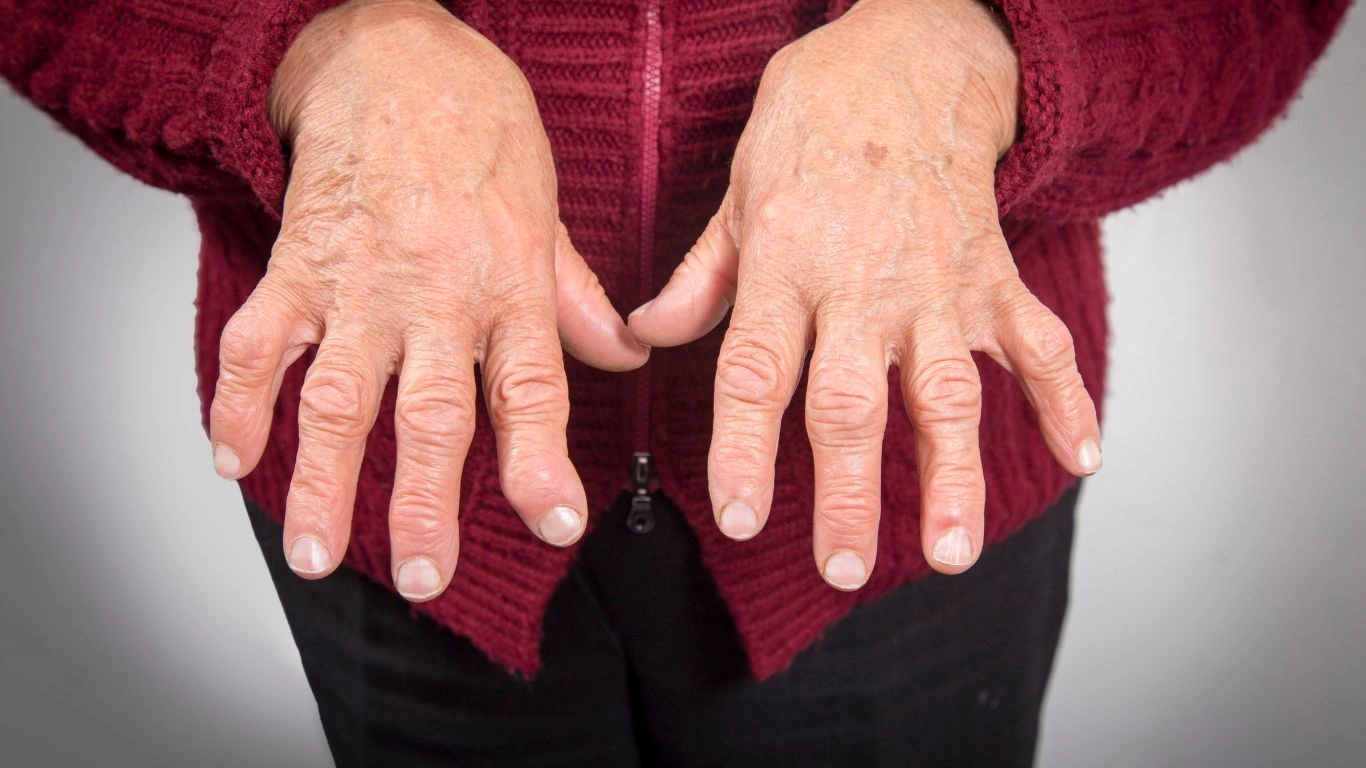The Shocking Link Between Rheumatoid Arthritis & Gut Health
Rheumatoid arthritis (RA) is a relentless opponent, sneaking into the joints and waging an all-out war on the body’s immune system. But what if I told you that relief might come from an unexpected place—your gut? Yep, the connection between rheumatoid arthritis and the role of a healthy gut is more profound than most people realize. As someone who has spent years helping patients navigate the ups and downs of RA, I’ve seen firsthand how gut health can make a world of difference. Let’s break it down.
Understanding the Gut-Joint Connection

Most people think of gut health in terms of digestion, but it’s so much more. Your gut houses trillions of microbes—some friendly, some not-so-friendly. When this delicate balance is disrupted, inflammation skyrockets, triggering immune responses that can worsen RA symptoms.
The Science Behind It
Researchers have discovered that certain gut bacteria, like Prevotella copri, may contribute to the development of RA. On the flip side, a gut rich in beneficial bacteria, such as Bifidobacterium and Lactobacillus, can help regulate immune function and reduce inflammation. It’s like a tug-of-war inside your gut, and the winner influences your joint health.
Personal Insights: What I’ve Seen in Patients
Over the years, I’ve worked with RA patients who struggled with unbearable stiffness and swelling. Many of them also had gut issues—bloating, irregular digestion, or even food intolerances. Once we focused on improving their gut health, their joint pain often became more manageable. Coincidence? Not likely.
Signs Your Gut Might Be Fueling Your RA

Not sure if your gut is playing a role in your RA symptoms? Here are some telltale signs:
- Frequent bloating or gas
- Unexplained food sensitivities
- Chronic diarrhea or constipation
- Fatigue that never seems to go away
- Skin issues like eczema or rashes
If you nodded along to any of these, your gut might need some TLC.
Foods That Harm & Help Your Gut (and Your Joints!)

What to Avoid
Some foods fuel inflammation and disrupt gut bacteria. Here are the biggest culprits:
- Processed foods: Packaged snacks, fast food, and anything loaded with preservatives.
- Sugar: Excess sugar feeds bad bacteria and promotes inflammation.
- Artificial sweeteners: Some studies suggest they disrupt gut bacteria balance.
- Gluten and dairy: Not an issue for everyone, but many RA patients report symptom relief when cutting back.
Gut-Friendly Foods for RA
Now, let’s talk about the good stuff—foods that nourish your gut and help tame inflammation.
- Fermented foods: Think yogurt, kefir, sauerkraut, and kimchi—loaded with probiotics to support gut health.
- Fiber-rich foods: Whole grains, legumes, and vegetables keep your gut bacteria thriving.
- Omega-3-rich foods: Fatty fish like salmon, flaxseeds, and walnuts help reduce inflammation.
- Bone broth: Packed with collagen and amino acids that support gut lining integrity.
Making small dietary tweaks can be a game-changer for both your gut and your joints.
Healing the Gut: Practical Steps for RA Management

Now that we’ve established how gut health influences rheumatoid arthritis, the big question is: how do you fix it? The good news? It’s absolutely possible to restore balance and reduce inflammation with a few strategic changes. And I’ve seen it happen firsthand.
1. Prioritize Probiotics & Prebiotics
One of the easiest ways to support your gut is by incorporating more probiotics—those friendly bacteria that help keep your gut flora in check. But here’s the kicker: probiotics need food too, which is where prebiotics come in. These fiber-rich foods help feed the good bacteria and keep them thriving.
Some of my top picks for both:
- Probiotic-rich foods: Yogurt (preferably unsweetened), kefir, kimchi, sauerkraut, miso, and tempeh.
- Prebiotic foods: Garlic, onions, leeks, asparagus, bananas, and oats.
I’ve worked with patients who simply added a daily probiotic supplement or started drinking kefir, and within weeks, they reported feeling less bloated, more energized, and—most importantly—noticed a reduction in joint flare-ups.
2. Reduce Gut Irritants
Sometimes, improving gut health is less about what you add and more about what you remove. Certain foods and lifestyle factors can wreak havoc on your microbiome, leading to more inflammation and, in turn, worse RA symptoms.
Here are a few common offenders:
- Excessive alcohol: It disrupts gut bacteria and increases inflammation.
- NSAIDs (nonsteroidal anti-inflammatory drugs): Yes, they help with pain, but overuse can damage the gut lining.
- Ultra-processed foods: These contain additives and preservatives that negatively impact gut bacteria.
One of my patients, a woman in her late 40s, struggled with persistent gut issues alongside her RA. After reducing her use of NSAIDs and making a few dietary tweaks, her digestion improved, and so did her joint pain. It’s all connected.
Gut-Friendly Lifestyle Changes for RA

Diet is a major player in gut health, but lifestyle factors matter just as much. Let’s talk about some game-changers.
1. Stress Less, Heal More
Ever notice how stress makes everything worse? It’s not just in your head. Chronic stress raises cortisol levels, which disrupt gut bacteria and ramps up inflammation. If you’ve ever had an RA flare-up after a particularly stressful period, this could be why.
Here are a few proven ways to lower stress and support your gut:
- Mindfulness & meditation: Just 10 minutes a day can make a difference.
- Gentle movement: Yoga and tai chi are fantastic for both stress relief and joint health.
- Quality sleep: Aim for 7-9 hours of uninterrupted rest.
2. Hydration & Gut Health
Drinking enough water sounds basic, but it’s crucial for digestion and gut function. Proper hydration helps flush out toxins, supports nutrient absorption, and keeps inflammation at bay.
Try these simple hydration hacks:
- Start your morning with a glass of warm lemon water.
- Drink herbal teas like ginger or chamomile, which also aid digestion.
- Eat water-rich foods like cucumbers, watermelon, and oranges.
Can Fasting Help with RA and Gut Health?
Intermittent fasting (IF) has been making waves in the health world, and for good reason. Some research suggests that fasting can help “reset” the gut microbiome, reduce systemic inflammation, and even ease RA symptoms.
How It Works
When you fast, your gut gets a break from constant digestion, allowing time for cell repair and microbiome balance. Some studies indicate that IF can help lower inflammatory markers, which is a huge win for RA sufferers.
Is It Right for You?
Fasting isn’t for everyone, and if you have blood sugar concerns or other health conditions, it’s best to consult with a healthcare provider first. However, even something as simple as a 12-hour overnight fast (for example, finishing dinner by 7 PM and not eating again until 7 AM) can be beneficial.
Case Studies & Real-Life Examples

Seeing the science behind gut health and rheumatoid arthritis is one thing, but hearing real-life success stories makes all the difference. Over the years, I’ve worked with individuals who transformed their symptoms by focusing on their gut, and the results have been nothing short of inspiring.
Case Study 1: Sarah’s Journey to Fewer Flare-Ups
Sarah, a 52-year-old teacher, had been struggling with RA for over a decade. Stiffness in her hands made daily tasks, like grading papers, incredibly painful. Despite medications, she still had frequent flare-ups.
We started by evaluating her diet. She often skipped meals and relied on convenience foods—many of which were loaded with inflammatory additives. By introducing more gut-friendly foods (fermented veggies, bone broth) and eliminating triggers (processed snacks, excess sugar), she saw a major difference. Within two months, her morning stiffness was significantly reduced, and her energy levels improved.
Case Study 2: How Mark Used Fasting to Reset His Gut
Mark, a 39-year-old engineer, was skeptical about gut health’s role in RA. But after a bad flare that left him barely able to type, he was willing to try anything. He started intermittent fasting, aiming for a 14-hour fasting window daily.
Within a few weeks, he noticed reduced bloating and better digestion. More importantly, his RA symptoms stabilized. He continued incorporating probiotic foods, and after three months, he reported fewer joint aches and a newfound sense of control over his health.
Key Takeaways: What You Need to Remember
If you take anything away from this, let it be these three key points:
- Gut health plays a major role in inflammation and RA symptoms. A disrupted microbiome can contribute to worsening joint pain.
- Healing your gut is possible. Simple steps like adding probiotics, reducing inflammatory foods, and managing stress can make a difference.
- Consistency is key. Improving your gut doesn’t happen overnight, but small, steady changes add up over time.
FAQs
Can fixing my gut completely cure rheumatoid arthritis?
RA is an autoimmune condition, meaning there’s no outright cure. However, improving gut health can reduce inflammation and significantly ease symptoms, making daily life more manageable.
How long does it take to see results?
It varies. Some people notice changes within weeks, while others take a few months. The key is staying consistent and tracking symptoms along the way.
Do I need to cut out gluten or dairy?
Not necessarily. While some people find that removing gluten or dairy helps, others don’t see much difference. The best approach is to listen to your body and work with a specialist to identify your specific triggers.
Bonus: Additional Resources or DIY Tips
Want to dive deeper? Here are some extra tips and resources to help you on your journey:
- DIY Gut-Friendly Bone Broth: Simmer grass-fed bones with garlic, ginger, and apple cider vinegar for a nutrient-packed elixir.
- Guided Stress-Relief Meditation Apps: Try Headspace or Calm to incorporate mindfulness into your daily routine.
- Food Journaling: Track what you eat and how you feel after meals—it can reveal surprising patterns!
Appendix: References, Disclaimer, and Call to Action
References
For further reading, check out these resources:
- National Center for Biotechnology Information (NCBI)
- Arthritis Foundation
- Healthline on RA & Gut Health
Disclaimer
This article is for informational purposes only and should not be considered medical advice. Always consult with a healthcare provider before making any significant dietary or lifestyle changes.
Call to Action
Have you experienced improvements in your RA symptoms by working on gut health? Share your story in the comments! And if you found this guide helpful, don’t forget to subscribe for more expert-backed health insights.

Tarra Nugroho is a dedicated Nurse Practitioner with a strong foundation in family and preventive care. She brings both compassion and clinical expertise to her practice, focusing on patient-centered care and health education. As a contributor to Healthusias.com, Tarra translates medical knowledge into clear, empowering articles on topics like women’s health, chronic disease management, and lifestyle medicine. Her mission is simple: help people feel seen, heard, and informed—both in the clinic and through the content she creates. When she’s not caring for patients, Tarra enjoys weekend hikes, plant-based cooking, and curling up with a good health podcast.







